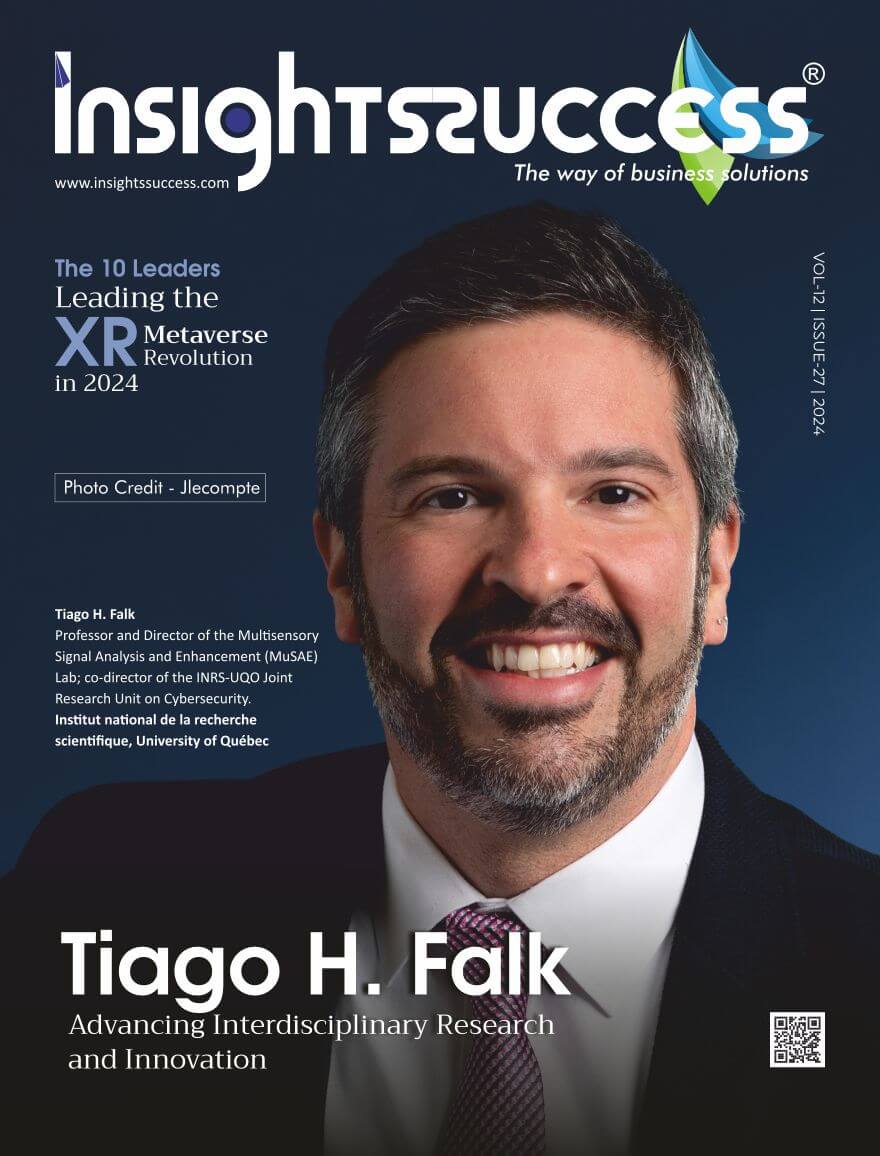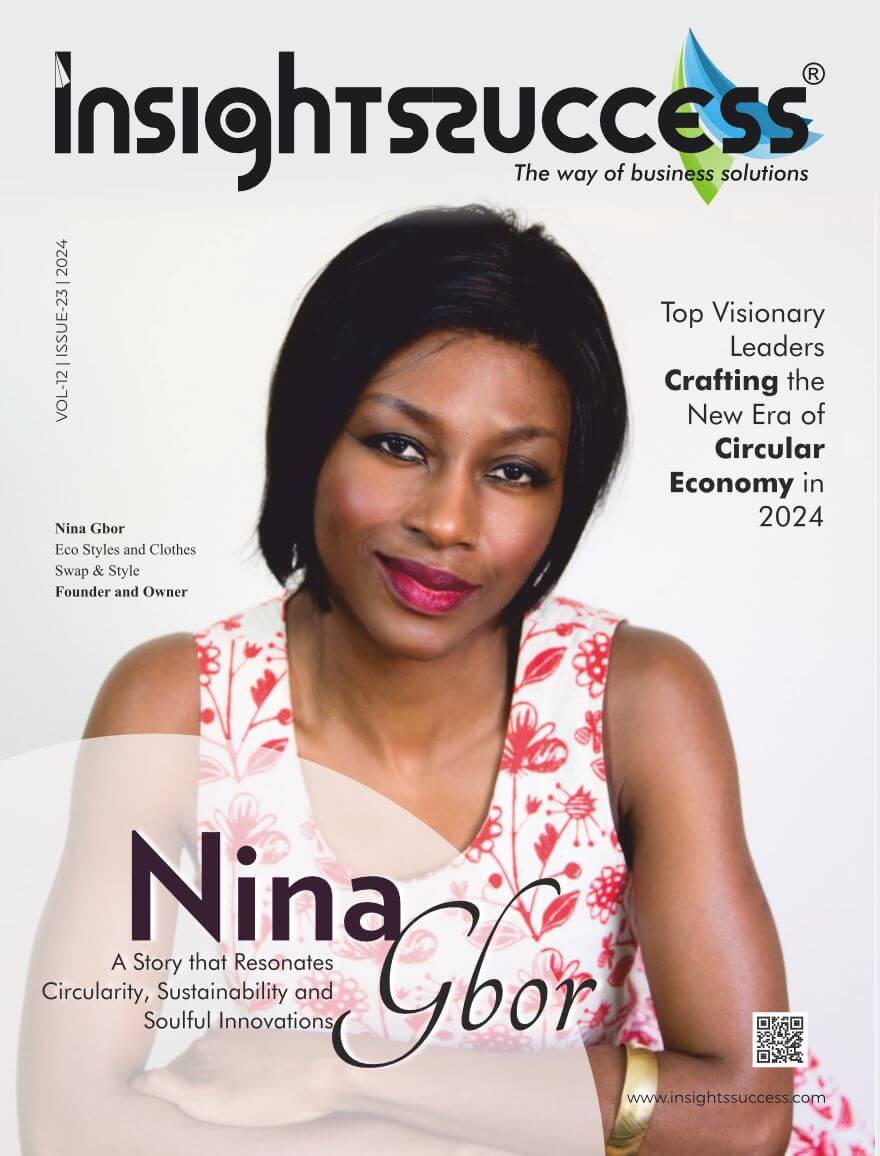Founded in 2011, Ubimax is the global market leader for Enterprise Wearable Computing and Augmented Reality Solutions. As a one-stop-shop, Ubimax provides an all-in-one solution– Augmented Reality software, Wearable Computing devices, configuration and deployment services, as well as support. The company has built up a very strong partner ecosystem with more than 200 enterprises around the globe including Germany, the US and Mexico.
We approached the renowned CEO, Dr. Hendrik Witt for an interview about the glorious and successful journey of Ubimax throughout:
Q: Brief us about your company, its inception, and journey.
A: Our company started out like a fair number of start-ups: A bunch of people having spent some years in strategy and management consulting with a joint vision working on their business idea in a small room almost around the clock. But we know what we were working on was worth it: Improving industrial processes with the help of wearables and augmented reality, enhancing deskless workers, so they can reach their full potential.
Q: Tell us about the Founder/CEO of your company, his ambitions, and philosophy.
A: Before Ubimax, I was working in the field of wearable computing already. My background of now more than 15 years in wearable technology for enterprises, does not only consist of PhD from the University of Bremen and Georgia Tech, where I was working with the wearables pioneer Thad Starner, but also from being the Co-Head in the EU-funded research project ‘wear IT at work’. From then on it was the goal to mature the technology to be able to meet the market’s needs and make it profitable. Ubimax’s roots lie in a strong team of the three founders Percy Stocker, Jan Junker and Dr. Hendrik Witt. We met during our strategy and management consulting time and realized they had fun working together and pursuing the same ideals. Shortly after the founding, Ubimax became the global market leader for industrial augmented reality-based wearable computing solutions creating digital tools for real world problems. While Percy has taken over as President of Ubimax Inc. in the US, Jan is leading the commercial activities as CCO and I have taken over the role of CEO.
Q: What is the present scenario of Logistics Tech Solution industry from your point of view?
A: Right now, the fear of automation erasing jobs in logistics is omnipresent. We are here to shift that fear into opportunity. Yes, digitized working environments optimize processes in warehouses but the human factor cannot be underestimated. Aspects like intuition and flexibility are bound to people. Globally, 80% of this human workforce are deskless workers. In digitization over the last decade, this majority of workers has been forgotten. They are often still working with paper lists or cumbersome stationary computers. And if software solutions are provided, they frequently have complex requirements or are just not user-friendly. For us, it is all about empowering these frontline workers with the tools they need to maximize their abilities. This also means that companies implementing the innovative technologies are way more likely to achieve their efficiency and quality improvement goals in an even shorter amount of time.
Q: What kind of ‘out-of-the-box’ strategies your company is following to differ from the competitors?
A: With Ubimax Frontline, we have created the world’s first fully integrated end-to-end enterprise platform for wearable computing. Designed around the four award winning AR solutions xPick for intralogistics, xMake for manufacturing and quality assurance, xInspect for field service and xAssist for remote service, we are able to support deskless workers in their daily tasks alongside the entire value chain. Our software works intuitively without complex requirements. So, workers are not distracted from their actual tasks and can work more productively while it increases their workplace safety and ergonomics at the same time. With Ubimax Frontline we create an innovative and digitized working environment for hands-on workers. It is like Microsoft office – only for the blue-collar worker. The goal is that companies, processes and the workers can benefit from our solutions likewise.
Q: How does your organization contribute to the Company Social Responsibility cause?
A: Social responsibility for us is all about people. After all, connecting people with and through technology – this is what Ubimax stands for. That is why we not only support deskless workers all around the globe but we also put the human being with all his qualities and experiences in the foreground in our own company. We see internationality and cultural diversity as opportunities. Our team consists of 17 different nations with 15 different languages. Without our diverse team, it would not have been possible to become the world market leader in such a short time. Our clients are large corporations operating on an international scale. Only with our diverse team, in which intercultural exchange is a given, we are an attractive partner for the international market. Diversity thus provides us with a real competitive advantage and drives us forward.
Q: How do you diversify your offerings so as to benefit your customers?
A: We are a company that listens. We found, the more we are ready to learn from the productive use of our platform, the better our solutions become. A lot of the features found within our software are either based on concrete customer wishes or derived from challenges being solved in productive usage. We do not think that creating new technology only because it is feasible but it does not have a productive value is advantageous for anyone. With every new feature we want to meet real industry challenges. So far, we can rely on 250 customer projects. The experience gained from these is a valuable source for new ideas on how to adapt our software even more precisely to our customers’ needs. This way, we grow as a company with every new challenge, with every new project with every new customer.
Q: From the beginning till today, list out toughest difficulties you faced and lessons you have learned from them? What is the effect of the current Diesel phase-out plans proposed by many countries on your company?
A: The Diesel phase out plans and other environmental challenges are actually a big opportunity for us. Our main goal is optimizing industrial and logistical processes along the entire value chain. That reduces not only generally costs but also specifically the need for resources of any kind. Through optimizing logistics, we are driving lean processes forward which helps to reduce transportation and storing efforts. With our remote assistance solutions traveling for problem solving becomes obsolete in a lot of cases – again a great chance in times of environmental challenges. Also, our solutions support the construct of a paperless factory by providing all needed information digitally right in front of the worker’s eye.
Q: With the massive advancements in technology such as IoT, Autonomous Vehicles, AI, Electric Vehicles, and more what are the opportunities and challenges evolving with it?
A: At Ubimax we have recognized these opportunities long ago. Features like IoT components are integrated into our platform as well as AI features like image recognition for recognizing picked items for example. With the help of wearables, data collection has become easier than ever before. The analysis of that accumulated data offers a precise base for profound decisions. Through the mobile devices the connectivity is maximized, too. That way, a powerful collaboration between humans and machines – the so-called Internet of Humans – is achieved. With our solutions we are augmenting the workforce’s intelligence. One challenge that we are facing is the acceptance of the technology among workers. All provided advantages can sometimes not trump ethical concerns like data security or surveillance at the workplace. We at Ubimax have implemented features like a recording symbol when the camera is started remotely. The worker is then informed that his supervisor is watching. These steps seem small but they are powerful tools for increasing workers’ autonomy.
Q: What can be expected from your company in the near future?
A: For us, the future is an augmented workforce. We want to achieve this not only through wearable computing and augmented reality but through this combination enhanced through artificial intelligence. That is what we call augmented intelligence. Driving industry and logistics forward with next-level technologies and providing real added value with digital processes. While artificial intelligence offers an array of advantages on the business side it also empowers frontline workers by supporting healthy working environments and making information even more easily accessible. That way we create a win-win situation for all involved stakeholders.
Q: Any advice for the budding entrepreneurs in the industry?
A: We believe that after mobile and smart phone era the next computing decade belongs to wearable devices. In the last years, the market has developed rapidly and continues to grow up to an estimated market value of 35 billion by 2023. Thus, the field is offering plenty of opportunity for new companies with good ideas. The most important aspect for us is not to lose the focus on the workforce. After all, they are the ones to use the technology on a daily basis. With that in mind, we are looking forward to new faces entering the market driving the industry forward together.



















